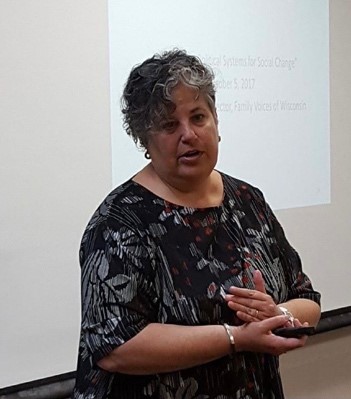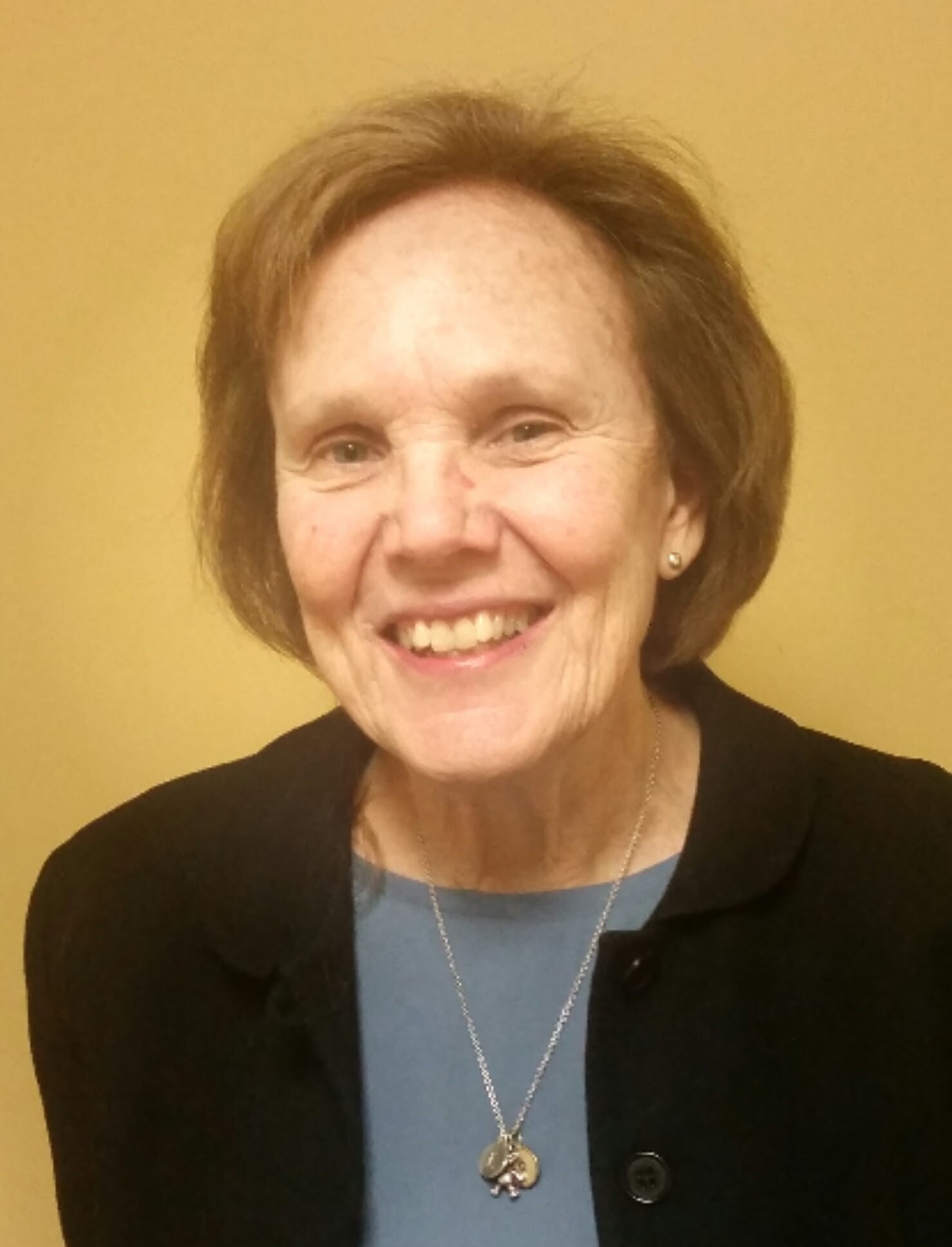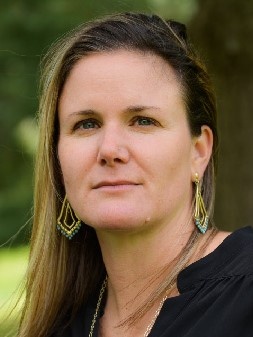
Family Engagement
What is Family Engagement?
Family engagement is an intentional partnership between families, youth, and health-related service providers across the systems of care. Family engagement is grounded in mutual respect, shared decision-making, and the recognition of the unique expertise that families and youth bring through their lived experiences.
Meaningful youth and family engagement is a complex concept that goes far beyond starting an advisory council or hiring a family representative. There are many factors at the patient and family, organizational, community, and societal levels that can enhance or detract from family engagement. Family Voices uses an evidence-based framework to ensure consistency and quality in family engagement across settings and systems.
Our Framework for Engagement
Our evidence-based framework for youth and family engagement includes three main areas of focus:
- The context and environment for engagement
- The flow of information and how power is shared
- Planning, assessing and improving engagement in four domains

A Closer Look at the Framework
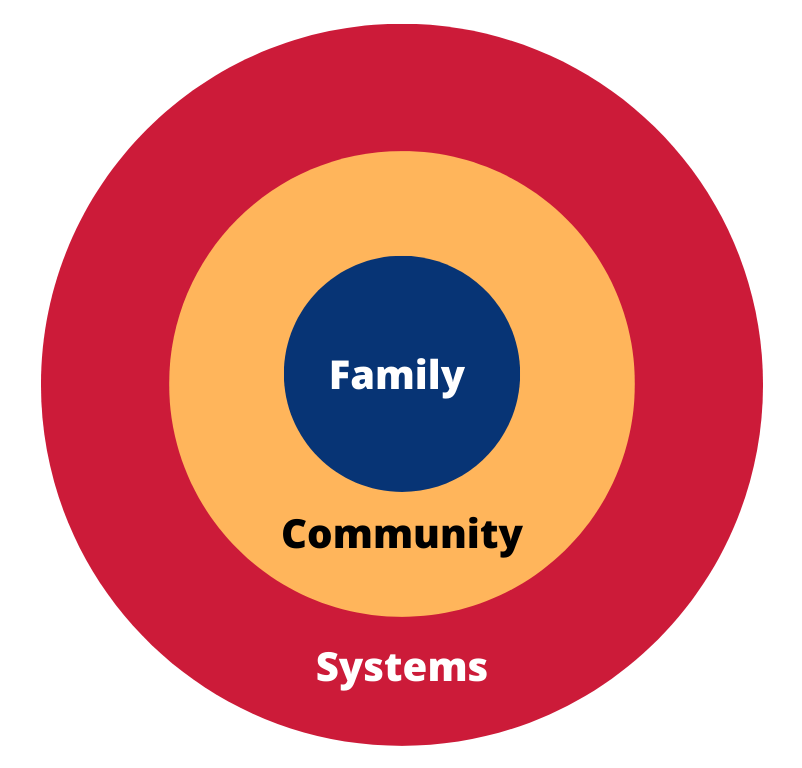
Context of Engagement
The context and environment for engagement includes the readiness of the team engaging youth and families and the people or context their engagement is intended to impact.
We assess teams to understand whether they are ready to engage youth and families in meaningful ways, and we provide technical assistance to meet each team’s unique needs to prepare for engagement. The assessments and technical assistance we provide are tailored to the setting and context in which the team operates.
Bennett et al. (2020)
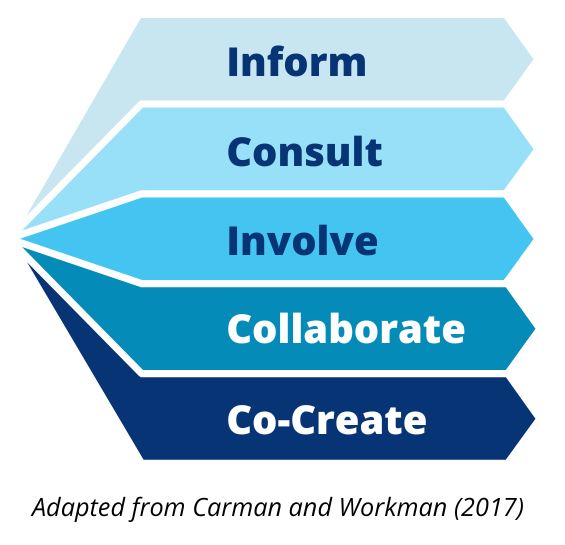
Continuum of Engagement
Next, we look at how information and power are shared in each team’s context. The flow of information and the decision-making power both have a role in how effectively youth and families are engaged. We help organizations and teams assess and reorganize communication on each level of the continuum and share power to maximize youth and family participation and minimize harm.
Carman and Workman (2017)
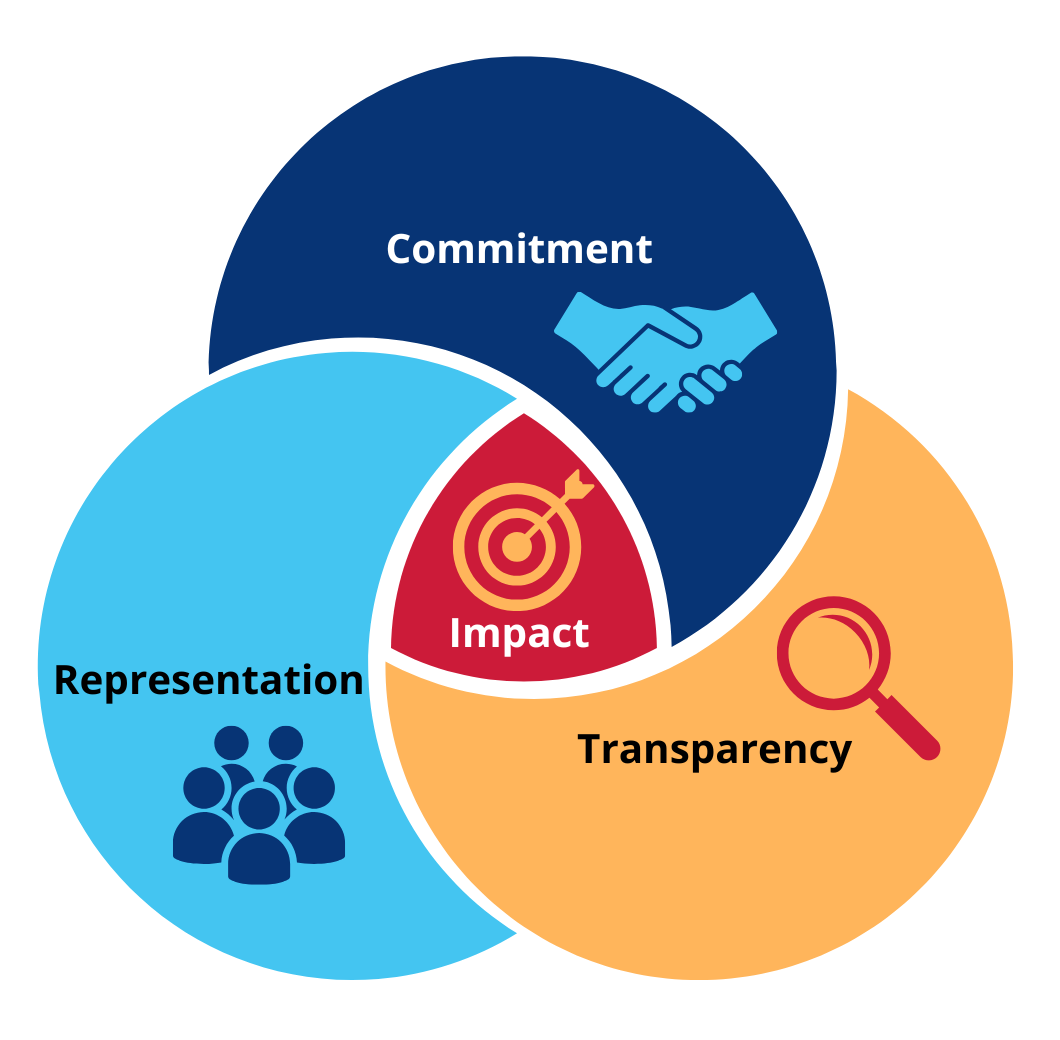
Domains of Engagement
Finally, we help each team plan, assess and improve their engagement in four specific domains: commitment, transparency, representation and impact. Each domain represents a core element of effective engagement that can be improved over time. Our training and assessment processes help organizations understand how effectively they are employing each domain in an organization or initiative and set specific goals in each domain.
(Hoover et al., 2018)
Together, the context of engagement, continuum of engagement, and domains of engagement provide a tangible framework for ensuring continuous and sustainable engagement in which the voices of youth and families are heard and valued.
This framework can help organizations prepare for engagement, be responsive and intentional about sharing information and making decisions, and ensure authentic and meaningful engagement through assessment and planning.
Let’s work together.
To learn more about how to work with Family Voices to improve youth and family engagement in your team, initiative or organization, contact us at partnership@familyvoices.org.
We help organizations:
- Define youth and family engagement and recognize the essential elements of engagement
- Assess how ready they are ready for meaningful youth and family engagement
- Prepare their teams to engage youth and families in their work
- Understand and navigate the challenges of youth and family engagement in their unique environments
- Plan meaningful engagement activities
- Assess the impact of current engagement activities
- Improve their engagement of youth and families in quantifiable ways
- Make the case for resources to support family engagement in their organization
Learn more.
- Download an information sheet about our Framework for Youth and Family Engagement
- Explore our tools for assessing family engagement and family engagement resources.
- Learn more about family engagement from the following brief written by Family Voices staff: A Framework for Assessing Family Engagement in Systems Change
References
-
Dy SM, Purnell TS. Key concepts relevant to quality of complex and shared decision-making in health care: a literature review. Soc Sci Med. 2012 Feb;74(4):582-7. doi: 10.1016/j.socscimed.2011.11.015. Epub 2011 Dec 23. PMID: 22236643; PMCID: PMC9723523.
-
Carman, K., Dardess, P., Maurer, M., et al. (2012) Patients and Family Engagement: A Framework for Understanding the Elements and Developing Interventions and Policies. Health Affairs, 32, 223-231. https://doi.org/10.1377/hlthaff.2012.1133
-
Rivadeneyra R, Elderkin-Thompson V, Silver RC, Waitzkin H. Patient centeredness in medical encounters requiring an interpreter. Am J Med. 2000 Apr 15;108(6):470-4. doi: 10.1016/s0002-9343(99)00445-3. PMID: 10781779.
- Alteras, T.T., Meyer, J.A., & Silow-Carroll, S. (2007). Hospital Quality Improvement: Strategies and Lessons From U.S. Hospitals.
- Hoover C, Paladino MJ, Dworetzky B, Wells N. A Framework for Assessing Family Engagement in Systems Change. Issue Brief. Lucile Packard Foundation for Children’s Health. April 2018.
- Institute of Medicine (US); Stoto MA, Behrens R, Rosemont C, editors. Healthy People 2000: Citizens Chart the Course. Washington (DC): National Academies Press (US); 1990. 7, People with Disabilities. Available from: https://www.ncbi.nlm.nih.gov/books/NBK235783/
- Funchess, M, Spencer, S, & Niarhos, M. (2014). The Evolution: Family-Driven Care as a Practice. National Federation of Families for Children’s Mental Health: Rockville, MD.
- Howrey, BT, Thompson, BL, Borkan, J, Kennedy, LB, Hughes, LS, Johnson, BH, … & Degruy, F. (2015). Partnering with patients, families, and communities. Fam Med, 47(8), 604-11.
- Health Research & Educational Trust. (2015). Partnering to improve quality and safety: A framework for working with patient and family advisors. Chicago, IL: Health Research & Educational Trust. Accessed at www.hpoe.org on January 30, 2017.
- Kuhlthau, KA, Bloom, S, Van Cleave, J, Knapp, AA, Romm, D, Klatka, K, … & Perrin, JM. (2011). Evidence for family-centered care for children with special healthcare needs: a systematic review. Academic pediatrics, 11(2), 136-143.
- Reynolds, MC, Birzer, M, St John, J, Wells, N, Anderson, B, & Walker, DK. (2015). Family Leaders and Workforce Leadership Development. Maternal and child health journal, 19(2), 252.



